Question And Answer
Publications
Articles, publications, books, tools and multimedia features from the U.S. Institute of Peace provide the latest news, analysis, research findings, practitioner guides and reports, all related to the conflict zones and issues that are at the center of the Institute’s work to prevent and reduce violent conflict.
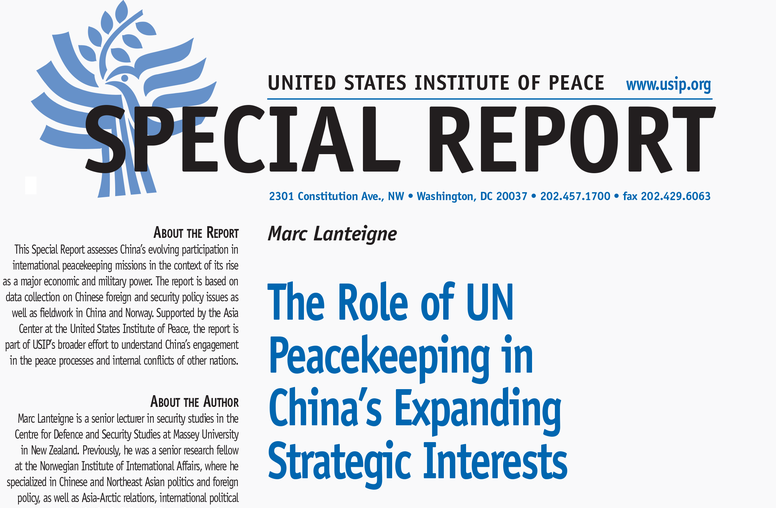
The Role of U.N. Peacekeeping in China’s Expanding Strategic Interests
Despite its growing status as a major economic and military power, China continues to be a strong supporter of UN peacekeeping operations. China is not only the second-largest financial contributor to UN peacekeeping (after the United States), it has roughly 2,500 personnel deployed in ongoing missions, including in active combat zones in Mali and South Sudan—far more than any other permanent member of the UN Security Council. This Special Report examines what China hopes to gain from its participation in UN peacekeeping, as well as the challenges it will face as its troops find themselves in more dangerous “peace enforcement” situations.
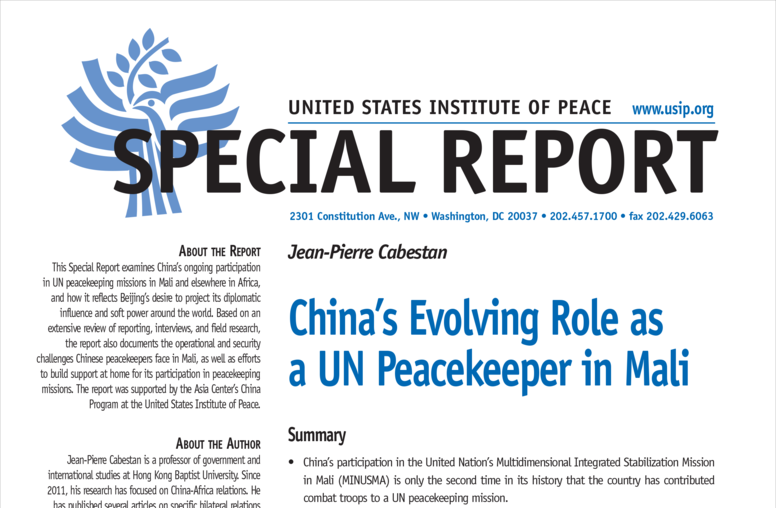
China’s Evolving Role as a U.N. Peacekeeper in Mali
Chinese troops have been stationed in Mali for the last half-decade as part of the UN-mandated stabilization force. Deployed after rebel groups overran large portions northeastern Mali in 2013, it was just the second time Beijing had ever contributed combat troops to a UN peacekeeping mission. This Special Report examines how China is using its peacekeeping activities in Mali as an opportunity to train troops and test equipment in a hostile environment—and as a way of extending its diplomatic reach and soft power in Africa and beyond.

Philippe Leroux-Martin on Russia’s Intentions in Macedonia and Kosovo
Philippe Leroux-Martin explains Russia’s intentions for interfering in both Macedonia and Kosovo to thwart possible NATO expansion and EU membership, and Western efforts to counter the Russian moves. Macedonians head to the polls on September 30 to vote in a referendum to change the country’s name...

Vikram Singh on the South China Sea
With trillions in goods moving through the South China Sea annually, it’s arguably the most important shipping lane on the planet, says Vikram Singh. While China says that it wants to keep the sea free and open for trade, most worryingly for the United States, Beijing has claimed it can deny access to military vessels, challenging the U.S.’ ability to maintain a balance of power in the region.
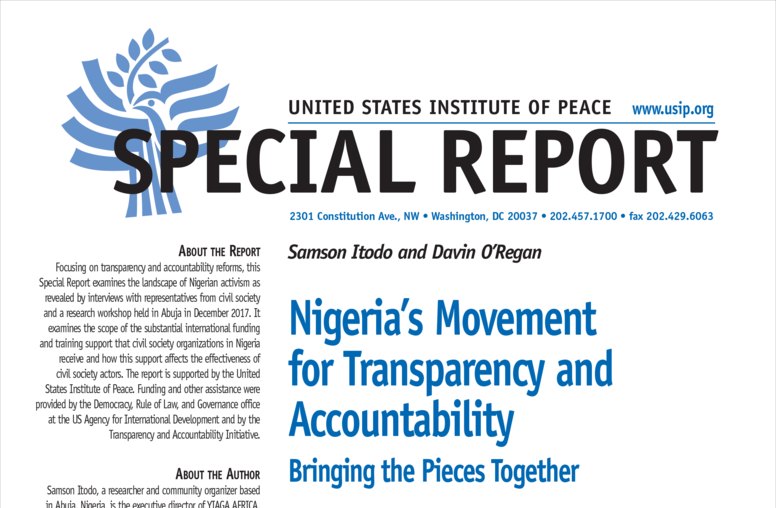
Nigeria’s Movement for Transparency and Accountability
Since the demise of its military dictatorship in the late 1990s, Nigeria has made remarkable democratic progress. Still, widespread corruption bedevils the country—which in many respects presents its biggest policy challenge and its biggest threat to stability and development. Drawing on a workshop held in Abuja as well as on...

Vikram Singh on President Trump’s Trip to India
The visit did not yield a bilateral trade agreement, as many hoped it would. But USIP’s Vikram Singh says that despite the trade impasse, the trip did deliver defense and energy deals and reinforced “the symbolism of this partnership continuing to grow basically as it has for the entire 21st century.”

Sarhang Hamasaeed on Iran and Iraq Amid Coronavirus Pandemic
As the coronavirus pandemic spreads in both countries, USIP’s Sarhang Hamasaeed examines the obstacles facing Iraq’s newly appointed prime minister, as well as whether addressing the crisis might open the door for de-escalation between the U.S. and Iran, saying, “I do hope that these unfortunate challenges still come with some opportunity.”
Disabling DPRK Nuclear Facilities
While the October 3, 2007 Six-Party Talks accord outlines a roadmap for the disablement of North Korea’s core nuclear facilities, the specific details of the nuclear disablement process are still being developed. USIP’s Korea Working Group commissioned this Working Paper in order to facilitate a better understanding of nuclear disablement.
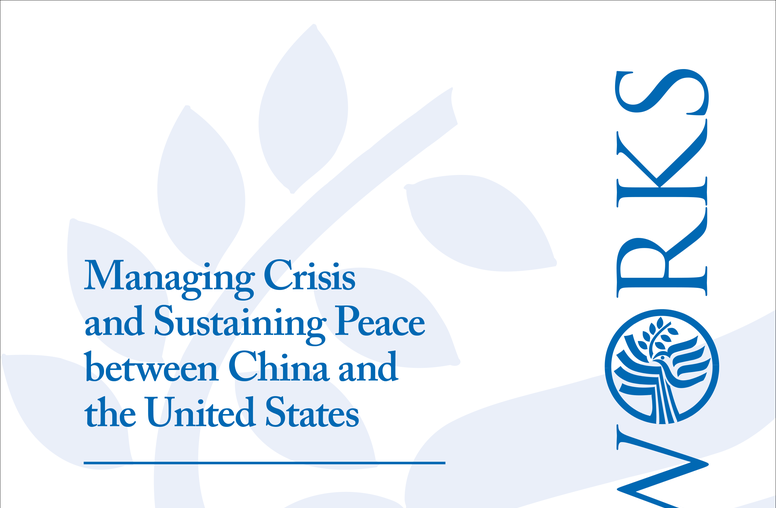
Managing Crisis and Sustaining Peace between China and the United States
A series of crises have strained relations between the People’s Republic of China and the United States since the end of the Cold War. Although none of these crises led to direct military hostilities, they have had an adverse impact on bilateral relations and portend future such crises between the two countries. To determine how best to mitigate such crises in the future, it is important to study these recent crises and identify the positive and negative responses and actions of both governm...
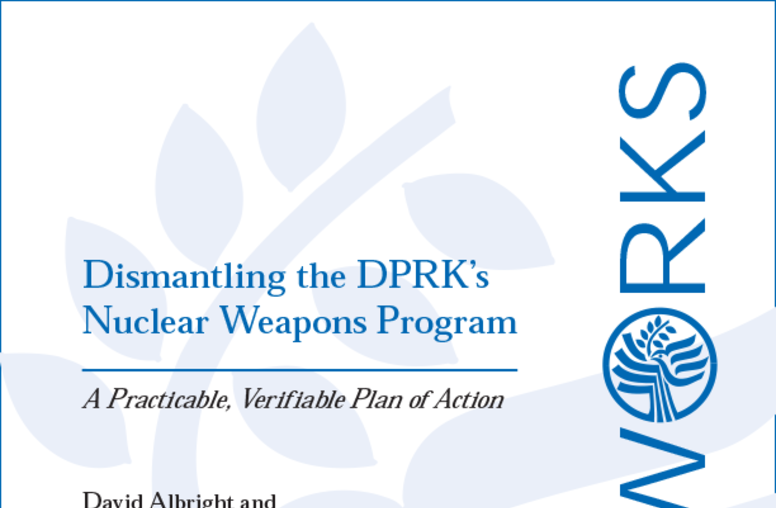
Dismantling the DPRK's Nuclear Weapons Program: A Practicable, Verifiable Plan of Action
Verified dismantlement of the nuclear weapons program of the Democratic People's Republic of Korea (DPRK) can be accomplished successfully. Although difficulties abound in reaching an agreement with the DPRK to achieve this goal, the methods and steps involved in the dismantlement process are well understood.